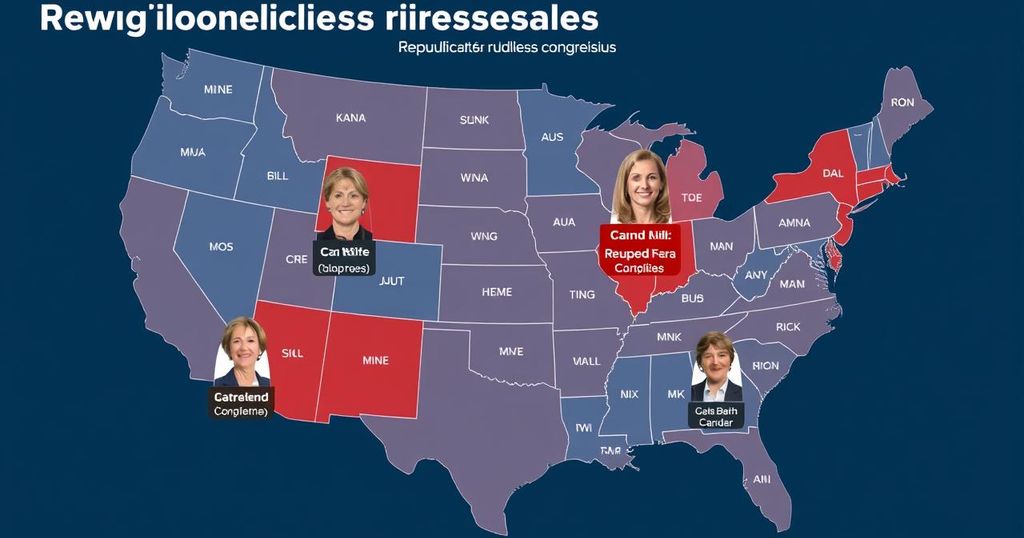Republican candidates in swing districts are attempting to moderate their past election denialism and extreme social issue stances to appeal to a wider voter base. The emergence of candidates like Gabe Evans illustrates the struggle between traditional conservatism and the growing influence of hard-right politics within the GOP. This shift may impact the upcoming 2024 presidential election and the overall direction of Congress.
In the current landscape of congressional races, Republican candidates are attempting to navigate their affiliation with election denialism while striving to appeal to broader voter bases in competitive districts. A notable instance occurred in a Colorado congressional district, where three Republican candidates responded to a direct query regarding the legitimacy of the 2020 election, each showcasing varying degrees of belief in election fraud. Gabe Evans, who ultimately secured the Republican nomination against Democrat Yadira Caraveo, offered an ambiguous response, indicating a careful balancing act between hard-line party loyalty and the necessity of rural pragmatism. Despite positioning himself as a ‘common-sense’ alternative and labeling his opponent an extremist, should he secure a victory, Evans represents a potential shift toward more right-leaning representation within the House of Representatives. Numerous House Republican candidates who question the validity of the previous election and maintain more extreme views on social issues are contending for critical seats nationally. These individuals are poised to replace traditional conservatives who have either exited the party or been effectively removed, marking a significant ideological evolution within the party that has increasingly embraced a Trump-centric platform. Their potential victories could influence both the certification process of the upcoming 2024 presidential election and the ideological landscape of Congress moving forward.
The article highlights a significant trend among Republican candidates in swing districts, particularly in the context of upcoming congressional races. Many candidates have sought to moderate their positions regarding the 2020 election and hard-right issues to appeal to a broader electorate while still aligning with the increasingly rightward trajectory of the party. Congressional contests are increasingly characterized by this division, revealing the tension between traditional conservative values and the more extreme positions that have gained prominence in recent years. This shift raises important questions regarding the future direction of the Republican Party, especially as elections approach that will determine the party’s control over Congress.
The current electoral dynamics reveal a shifting Republican landscape characterized by a blend of election denialism and the need for broad electoral appeal in competitive districts. Candidates like Gabe Evans illustrate the complexities of navigating party loyalty and public perception, suggesting a significant transformation within the Republican Party that could have lasting implications for congressional governance and electoral outcomes. As the party edges closer to the 2024 elections, the ideological ramifications of these shifts will be critical in shaping legislative priorities and the electoral process itself.
Original Source: www.nytimes.com






